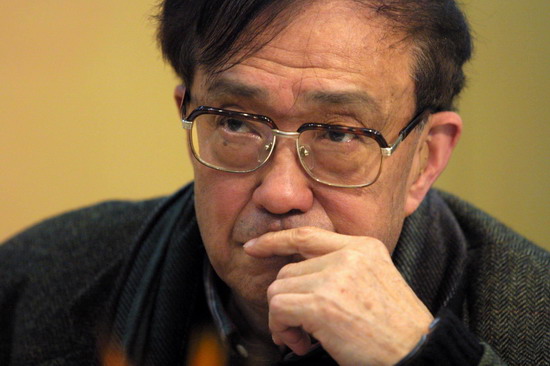The funeral of the famous Chinese film director Xie Jin is to be held in Shanghai on October 26, according to the Shanghai Film Group Corporation (SFC).
It will be held at the Longhua Funeral Home at 3 p.m..
 |
|
Xie Jin |
Xie's wife, Xu Dawen, wants the ceremony to be simple but solemn, said Ren Zhonglun, SFC president.
The 84-year-old filmmaker was found dead Saturday morning in his hotel room in Shangyu, eastern Zhejiang Province. He was there attending the 100th anniversary of his middle school.
The family has not confirmed the cause of death but some media are reporting that Xie died of a heart attack.
"Madam Xu is in great pain as she has lost two of her beloved in less than two months. Her eldest son, Xie Yan, died in August and now her husband. We are very worried for her as she just had heart surgery," said Ren.
The couple had three sons and a daughter. Xie Yan, also a film director, died of liver cancer at the age of 59 on August 23.
Memorials for Xie, including a candlelight vigil, have been held across the country.
The Shanghai Film Group Corporation is preparing a retrospective exhibition of Xie's films.
China's Central Television is rebroadcasting eight of his works on its film channel starting Monday.
Xie was born to a wealthy Shanghai banker in 1923 in Zhejiang. He made his film directing debut in 1957 with "Woman Basketball Player No. 5".
He went on to create other popular movies such as "The Red Detachment of Women", "The Herdsman", "Legend of Tianyun Mountain", "The Opium War" and "Hibiscus Town." He was active in directing until 2001 with his last film "Woman Soccer Player No. 9".
The Herdsman, shown in 1982, registered a record 150 million viewers. Three times his films won the Golden Rooster, a top award in the Chinese film industry.
Known as a bold director, Xie won respect by telling stories on taboo topics with his cameras. The classics, "Legend of Tianyun Mountain" and "Hibiscus Town" were regarded as a reflection of the Cultural Revolution.
Almost every film directed by Xie was iconic during different periods since the 1950s, remarked writer Zhang Xianliang
"Xie devoted himself to the movies. The most valuable thing to me is that he insisted on focusing on human nature and relationships, no matter what changed over time," Zhang said.
Xie once said in an interview in 2002, "I care not about the awards, but what my films left for the world, because history, time and people are the last film censors."
(Xinhua News Agency October 20, 2008)